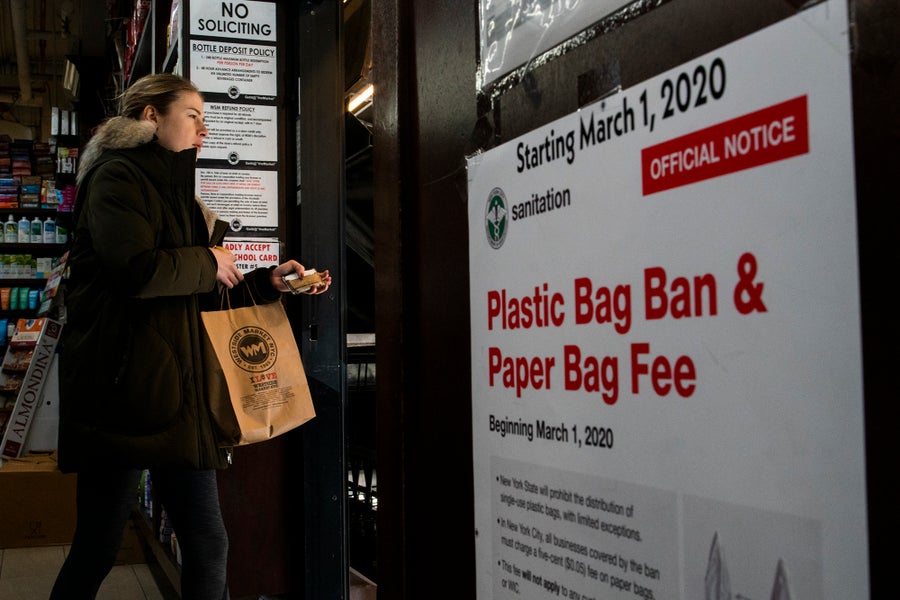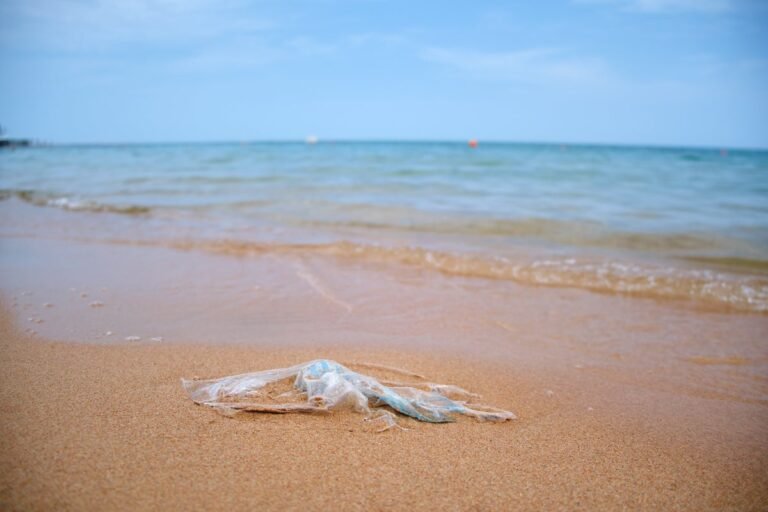Here’s How Plastic Bag Bans Are Working
Data from beach cleanups show that banning or taxing single-use plastic bags makes a difference in ecosystems
For one in three U.S. residents, single-use plastic bags are no longer a cheap and easy ubiquity—and beaches, riverbanks and lakeshores are benefitting.
That’s according to research published on June 19 in Science. Researchers analyzed data from thousands of shoreline cleanups across the U.S. and found that areas that implemented policies that banned single-use plastic bags or charged a fee for them had a reduced proportion of these items in their beach trash compared with sites without such policies. It’s perhaps the most solid evidence yet that these measures make a difference in the environment.
“I didn’t expect we would find anything,” says Kimberly Oremus, an environmental economist at the University of Delaware and a co-author of the new research. “I was very shocked.”
On supporting science journalism
If you’re enjoying this article, consider supporting our award-winning journalism by subscribing. By purchasing a subscription you are helping to ensure the future of impactful stories about the discoveries and ideas shaping our world today.
Oremus and her co-author, Anna Papp, an environmental economist, who will be starting a postdoctoral position at the Massachusetts Institute of Technology later this year, began the research when they learned about a massive trove of data from a nonprofit organization called the Ocean Conservancy. That group tracked trash collected at more than 45,000 volunteer-powered shoreline cleanups between January 2016 and December 2023. So Oremus and Papp wondered whether they could find any sign of what happens when a town, county or state creates a policy meant to limit single-use plastic bags.
And remarkably, they did. The researchers decided that, given the variety of the cleanup efforts that were represented in the database, they couldn’t meaningfully tally individual plastic bags. But they could determine what proportion of the trash at any given site was made up of these single-use bags and how that changed over time. The bad news: plastic trash overall increased everywhere over the eight years they studied, and single-use bags became a larger proportion of that trash everywhere as well. But by comparing the cleanup tallies with local policies, the team determined that both fees for and outright bans on plastic bags did lead to comparatively lower proportions of the bags in local beach garbage.

A customer exits a local market with paper bags after shopping at a local supermarket on March 1, 2020 in New York City.
Eduardo Munoz Alvarez/Getty Images
That’s an important finding for policymakers who are looking to make a difference, says Kara Lavender Law, an oceanographer at the Sea Education Association in Massachusetts, who was not involved in the new research. “This is actually one of the very few studies that has demonstrated the intended impact of the policy seems to be bearing out in the environmental data,” she says.
The researchers were able to dig surprisingly deep into the power and limitations of these policies, too. Was it possible that people were turning away from plastic generally, regardless of the policies? Oremus and Papp looked at other common plastic trash—straws, water bottles and bottle caps—and found that, for these items, nothing changed.
The researchers also looked at the policies in closer detail to determine what worked best. They found that complete bans were more effective than measures that prohibited some types of plastic bags but permitted others. And the team figured out that the policies made the most difference in places that had previously had the highest concentration of single-use bags in their shoreline trash.
The data also included a handful of observations of wildlife entangled in plastic. Here, Oremus and Papp found hints that policies that targeted plastic bags did seem to reduce these sightings, although they hope to study this connection in more detail in the future.
Taken together, the findings mean that bag bans and fees aren’t a plastic panacea but do matter. “These plastic bag policies are only targeting this one type of item,” Papp says. “They’re helping mitigate the pollution of this one type of item but are nowhere close to a solution on plastic pollution in general.”
Law cautions that trying to copy and paste plastic bag bans and fees onto other products may backfire. “I do think that policies around plastic solutions need to be narrow in scope and very specific to the item or the material or whatever it is we’re trying to reduce,” Law says. “We can’t just take one approach and create a blanket policy.”
Still, when confronting a challenge as vast as plastic pollution, all three scientists say that any successful approach is useful. “Plastics are so ubiquitous and single-use plastics are so heavily used that, of course, a straw policy or a single plastic bag policy is not going to solve the entire problem,” Law says. “But I do think that these actions are important—especially if we can demonstrate that they seem to be having an effect—because we have to start somewhere.”


